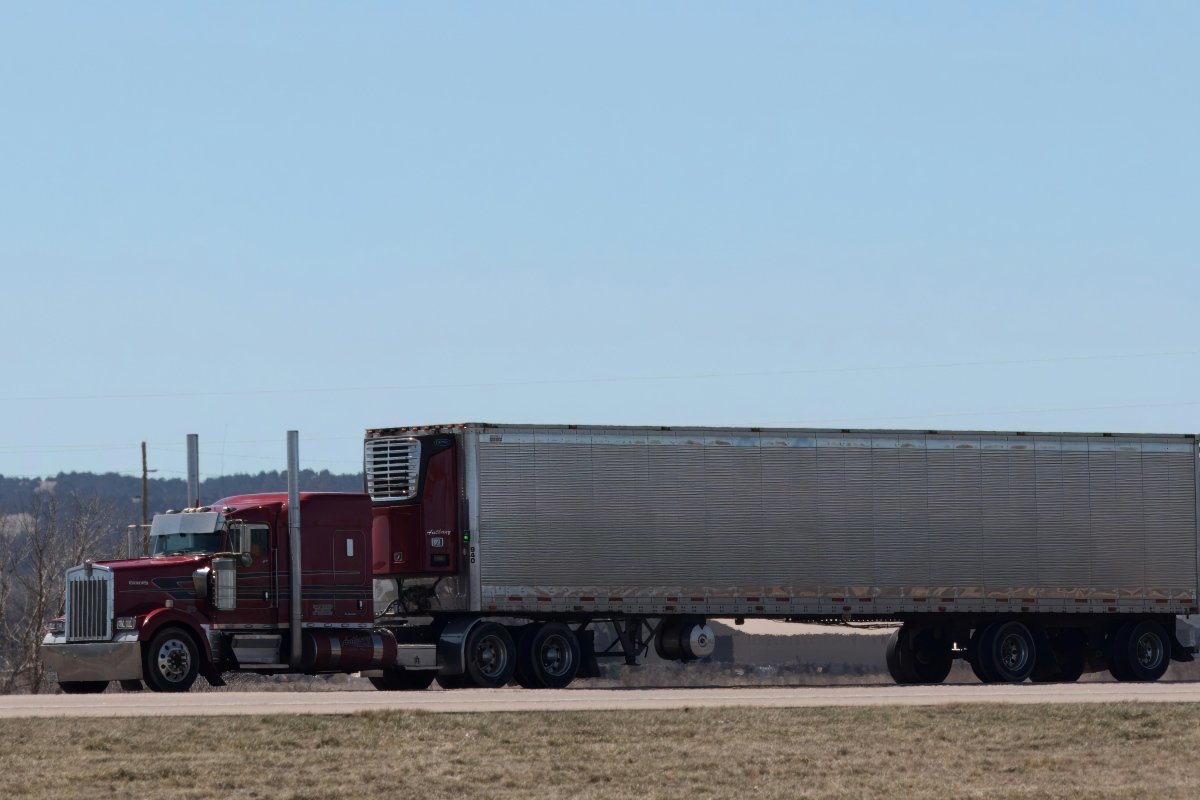Commercial vehicle leasing gives you a straightforward way to get on the road without tying up cash in a costly purchase. You can choose terms that fit your business needs, keep more money for fuel and operations, and return or upgrade equipment at lease end.
For truckers facing steep prices, this approach matters more than ever. The average cost of a new Class 8 truck from 2020 to 2024 is $195,115, with further increases expected under the Environmental Protection Agency’s (EPA) 2027 rules. Leasing provides a way to control costs and protect your business from major financial strain.
That’s why understanding the top advantages of commercial vehicle leasing is essential. It can shape how you manage cash flow, expand a fleet, and stay competitive in a changing industry.
What Is Commercial Vehicle Leasing?
When you lease a commercial vehicle, you enter a financing agreement that allows you to use a truck for a set period (usually two to five years) in exchange for fixed monthly payments. Ownership stays with the leasing company, while you control the vehicle during the lease term under the conditions outlined in your lease agreement.
You’ll find two common options in the trucking industry.
- A closed-end lease lets you return the vehicle at lease end without worrying about depreciation or resale.
- An open-end lease gives fleets with higher mileage more flexibility by tying the final cost to the truck’s residual value.
Both structures provide clear terms so you know your obligations from start to finish.
For truckers focused on cash flow, leasing is often the smarter path to securing heavy-duty commercial trucks or specialty vehicles. Instead of tying up capital in a purchase, you pay manageable lease payments and keep your dollars working in other parts of your business.

The Top Advantages of Commercial Leasing
Leasing comes with distinct financial, operational, and tax deduction advantages. For many drivers and small business owners, these benefits make leasing a more sustainable option than buying.
Below are the top reasons why leasing has become a leading solution for truckers across the United States.
1. Lower Up-Front Costs and Better Cash Flow
When you lease vehicles instead of buying them, you avoid tying up thousands of dollars in down payments and sales tax.
A typical purchase requires large capital outlays and immediate depreciation, while leasing a commercial vehicle usually starts with the first month’s payment and a modest security deposit.
This gives you breathing room to direct money toward fuel and insurance, two of the biggest ongoing expenses for truckers. It also frees up working capital to invest in contracts or add drivers.
With improved cash flow, you stay flexible and keep your business moving without draining reserves at the start.
2. Avoiding Depreciation and Vehicle Value Loss
You know better than anyone how quickly a truck loses value once it’s on the highway. High mileage, tough routes, and wear from hauling freight can mean a truck depreciates tens of thousands of dollars in just a few years.
With commercial vehicle leasing, the leasing company carries that burden, not you.
Instead of worrying about trade-in dollars or negotiating with a dealer, you can return the truck at lease end or step into a newer model. This eliminates the stress of resale and keeps your total cost of ownership predictable.
By letting someone else handle depreciation, you reduce financial risk and maintain stronger balance sheets.

3. Easier Commercial Fleet Upgrades and Access to Newer Trucks
When freight contracts change, so do equipment needs. Leasing allows you to upgrade faster, whether you want heavy-duty trucks for long hauls or box trucks for regional routes. Fleet leasing provides multiple options to match vehicles to your current workload, making it easier to adapt when demand shifts.
Access to the latest vehicles means you benefit from fuel economy improvements and new safety features.
At lease end, you can trade in for an updated model or extend your agreement with flexible terms. This cycle keeps your fleet modern and compliant with federal regulations without sinking money into outdated equipment.
4. Reduced Maintenance and Repair Expenses
Repairs are a fact of trucking, but they don’t need to derail your budget. Many commercial vehicle leasing agreements include coverage for routine maintenance and scheduled service, lowering the surprise costs that come from breakdowns.
Routine oil changes and tire rotations can be included in the contract, while larger repairs may be covered under extended warranties. Add-on coverage, such as roadside assistance and trip interruption coverage, provides extra protection.
If your truck goes down, you can get towing and a replacement so you’re not stuck off the road, losing revenue. With fewer repair bills to manage, you simplify fleet management and maintain steady earnings.
5. Tax Benefits of Commercial Vehicle Leasing
Leasing a truck also offers valuable tax advantages. In many cases, your lease payments are treated as tax-deductible operating expenses. This lowers taxable income and gives you savings that can be reinvested into fuel or payroll.
Another advantage is sales tax. Instead of paying the full amount upfront like you would with a purchase, you often pay sales tax only on the portion of the vehicle you lease. This structure can deliver meaningful savings year after year, especially when you run multiple vehicles.
Always review your lease agreement with a tax professional, but the benefits can add up quickly.

6. Flexible Credit Requirements for Truckers
One of the biggest benefits of commercial vehicle leasing is that approval is often based on more than just a score. Leasing companies may look at your driving record and revenue potential, giving you a fair chance to secure a truck even if traditional lenders have turned you away.
This flexibility matters whether you’re recovering from bankruptcy or starting a business with limited credit. Instead of waiting years to rebuild, you can get on the road to generate a steady income and strengthen your financial profile along the way.
Mission Financial Services makes this advantage a reality by considering applicants with credit scores as low as 460. With options for first-time buyers and drivers with past credit challenges, we offer practical solutions that help you access equipment and keep your business moving forward.
7. Predictable Monthly Payments and Budget Planning
When you choose a lease agreement, you lock in predictable monthly payments that make planning easier. This stability is valuable in an industry where diesel prices and insurance premiums often fluctuate.
Knowing what you’ll pay each month allows you to budget confidently and avoid cash crunches.
Stable payments also create room for long-term planning. You can forecast payroll, invest in equipment upgrades, and save for expansion because you’re not guessing what your truck will cost you next quarter. Predictability supports smarter business decisions and reduces financial surprises that could disrupt operations.

8. Reduced Risk in a Changing Trucking Market
New tariffs, changing contractor rules, rising leasing costs, and EPA rule changes can all turn a once-profitable truck into a liability.
Leasing reduces your exposure by allowing you to adjust your fleet size at lease end. You can return underused equipment, swap into newer fuel types, or extend a contract if market conditions stay favorable.
Flexibility is especially important for small fleets. You avoid being locked into ownership of trucks that may no longer fit your routes or customer needs. Leasing lowers the risk tied to unpredictable market changes and helps you stay agile when the industry shifts.
9. Smart Option for Various Trucking Business Needs
If you’re starting your first trucking business, leasing provides an affordable way to get reliable vehicles without massive debt.
Instead of saving for years to buy, you can step into modern equipment with lower barriers to entry. You have the chance to prove yourself with shippers and brokers while building a track record of successful deliveries.
For a small fleet management company, leasing makes expansion possible without overextending cash flow. Multiple vehicles can be leased simultaneously, with flexible terms tailored to your budget. By focusing on revenue generation instead of ownership headaches, you lay the foundation for long-term success.

Who Should Consider Commercial Vehicle Leasing?
Leasing is not for everyone, but it is an excellent fit for many drivers and businesses in the trucking sector.
Consider commercial vehicle leasing if you are a:
- First-time buyer seeking access to your first truck with limited credit history.
- Owner-operator who wants predictable monthly payments and reduced upfront costs.
- Small fleet owner expanding operations without risking cash flow.
- Driver with less-than-perfect credit who may not qualify for traditional loans.
- Business that needs access to the latest vehicles and improved fuel economy.
- Company seeking flexibility in case market conditions or contracts change.
If any of these describe your situation, leasing could provide the financial and operational advantages you need.
Conclusion
Commercial vehicle leasing gives you the tools to stay competitive without the heavy burden of ownership.
Lower upfront costs, predictable monthly payments, and reduced maintenance risk make it easier to manage your cash flow and keep your trucks running smoothly. Access to newer equipment and flexible lease-end options also helps you adapt quickly as freight markets and regulations change.
For first-time buyers and drivers with less-than-perfect credit, leasing isn’t just a way to get behind the wheel – it’s a smarter strategy for building long-term stability in the trucking business.
Ready to take advantage of the benefits of commercial vehicle leasing?
Mission Financial Services offers flexible solutions that put you on the road faster. Start your credit application today and keep your business moving forward.


